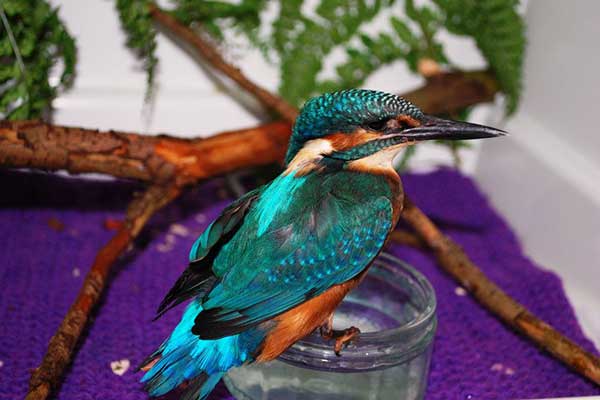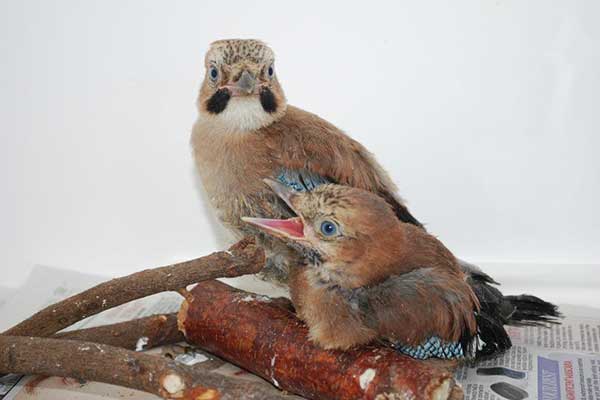For all Fox related injuries and enquiries, please contact The Fox Project based at The Lodge, Kings Toll Road, Pembury, Tunbridge Wells, TN2 4BE.
Tel:
01892 731565 (9am – 9pm daily)
Injured foxes should not be moved or handled by members of the public as they are likely to bite.
Road Traffic Accidents
Foxes, like badgers, are the frequent victims of road traffic accidents.
If you hit a fox or see an injured animal in or by the roadside, put your hazard lights on and if possible, position your vehicle so as to afford protection for the injured animal from on-coming traffic. If you keep a reflective tabard in the car, put it on, as there is a very real danger from other road users who may not see you in the dark. Once it is safe to do so, check to see whether the animal is still alive. A gentle prod with a long stick is the safest way to do this, but do not use your hands or feet, as you may get bitten.
If you can (keeping your hands well clear of its head) cover the animal completely with a coat or blanket, as this will help keep it calm and reduce the chance of it crawling further out into the road.
For all Fox releated enquiries outside of normal working hours of The Fox Project please call the RSPCA on 0300 1234 999
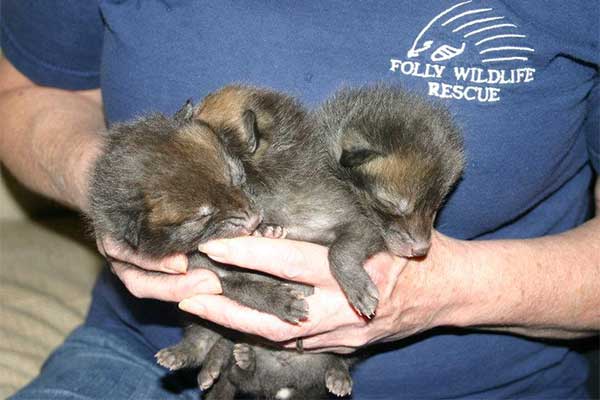
Three fox cubs (2 boys and a girl) having a sleepover at Folly before being transfered to The Fox Project. They were here because the shed they had made their home was pulled down and their mother did not return.
Sarcoptic Mange
Foxes often suffer from sarcoptic mange. There are several forms of the disease which is caused by a microscopic mite living under the skin.
Foxes with mange suffer hair loss (which often starts at the base of the tail) and intense irritation, followed by secondary bacterial infection that causes the sweet mangy odour so indicative of the condition.
Untreated foxes slowly become emaciated and as their ability to hunt is impaired, many die of a combination of infection, dehydration and starvation.
If a fox with mange can be trapped in time, veterinary drugs are available that will cure it. The Fox Project specialises in trapping foxes and should be contacted for advice.
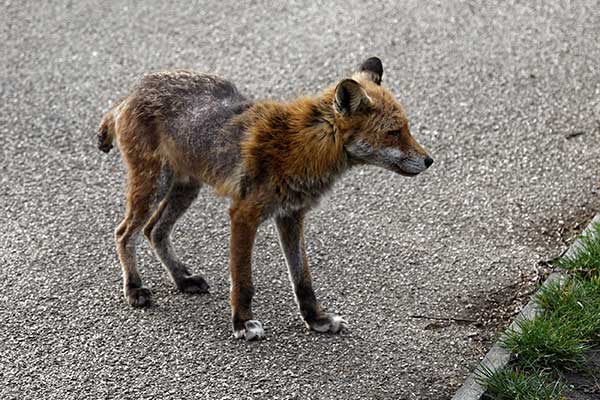
Fox with Sarcoptic Mange. Mange can take several weeks to months to completely clear.
Snares
Foxes are often caught in snares, which are still legal in the UK. They suffer appallingly in these devices which also trap badgers and domestic dogs and cats.
If you come across one, do not attempt to free it, as you may well be bitten. Additionally, an animal in a snare will have severe compression injuries that will require immediate veterinary treatment. If you can do it safely, cover the animal’s head with a coat, as this will help to calm it. Otherwise keep well clear of the animal as this will help reduce stress (it doesn’t know you are trying to help it) and call the The Fox Project on the number above for assistance.
Foxes Caught In Fencing And Netting
Foxes sometimes get caught in fencing or entangled in garden or sports netting. If you come across one, it is important to follow the protocol laid down for Snares above.
Fox Cubs
People often pick up fox cubs in the mistaken belief that they are ‘orphaned’ or ‘abandoned’. This is not usually the case, but simply that the vixen, perceiving a threat, has moved her cubs and while doing so, has been disturbed. She leaves them until the coast is clear and when it is safe, returns to collect them.
If you come across a cub or cubs, they should, unless they appear injured or ill, be left alone.
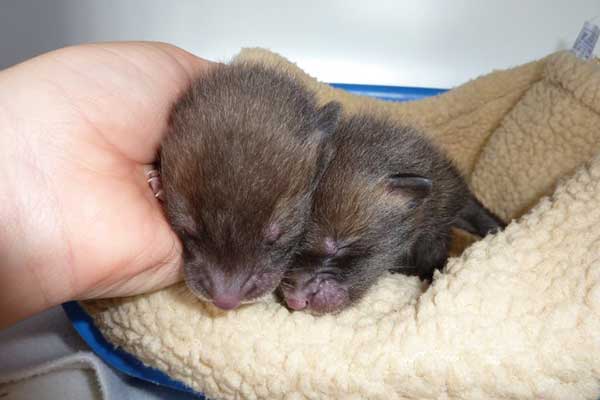
Stuey and Bertrum when they first arrived. Eyes are still shut tight at this young stage.
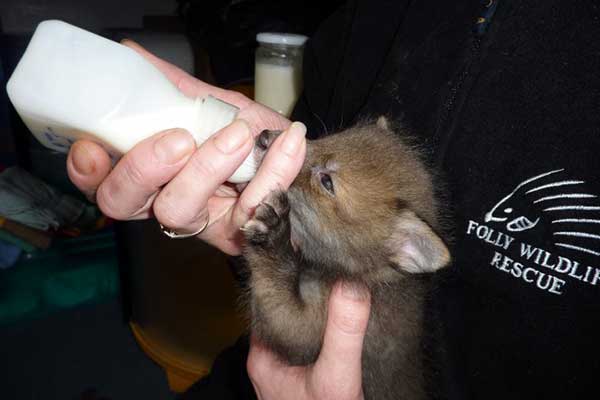
Bertrum on the big bottle. Now weaned onto solid food and wolfing down the meat! A very good sign!

Stuey with eyes now wide open and growing up. Now on the big bottle and being weaned on solid food.

Stuey trying to climb onto Melissa to be fed.
Limping Foxes
Foxes can often be seen limping. There are many possible reasons, ranging from being hit by a car, attacked by a dog, a fight with another fox, or being shot with an airgun or other weapon.
Very often, if the wound does not become infected, the animal makes a full recovery.
Support feeding, in the form of some food scraps or tinned dog food will help aid recovery, as the need to hunt will be reduced, but once the animal has done so, reduce the food and then stop altogether. Foxes do not need additional food put out for them.
You can make a secure online donation via our CAF page.
Click on the button below and a new page will open with a variety of options with which to pay online.
Your kind and generous donation will directly help injured wildlife.

It is easy to set up a regular standing order by clicking the CAF image below. You will be taken to The Southern Wildlife Care and Advisory Trust's page on the CAF website where it will take just a few easy steps to set up a standing order by direct debit.

easyfundraising.org.uk is a great way to raise money for Folly Wildlife Rescue just by shopping online. You don’t pay anything extra.
All you need to do is use click on the banner below to use our easyfundraising portal. Every time make a purchase from your favourite online retailers using the link below Folly Wildlife Rescue will receive a small payment, with no extra cost to you.

With the endless stream of wildlife casualties brought in to Folly Wildlife Rescue we are continually looking for stocks of essential items to aid recovery. With the introduction of our new nursery we will be able to cater for even more little babies, and with that comes more expense and that is where you, our supporters, may be able to help.
Our Amazon Wish List is updated frequently with all the essential items we needr. Your support is absolutely invaluable to us and every item purchased is a vital saving for our charity.

An adoption pack makes a great gift for a birthday or Christmas (or you can always treat yourself!) and is a very practical way to help hedgehogs in distress.
As well as illnesses and injuries the species is now seriously threatened by loss of habitat and housing developments, increased road traffic and unsympathetic farming practices








